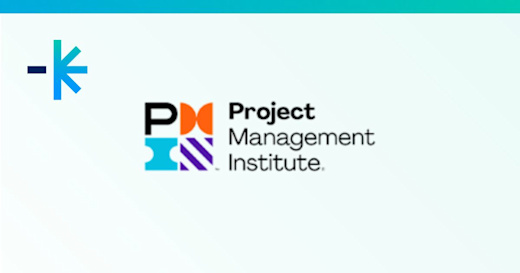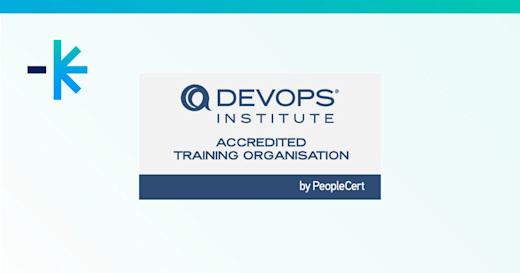ITIL®, (originally the Information Technology Infrastructure Library® but now simply known as ITIL), is a set of practices designed to better align one’s IT systems with their current business objectives.
The framework aims to offer quality IT Service Management (ITSM): the art of implementing, managing, and delivering IT services to meet the needs of a business. By improving one’s current ITSM practices, ITIL enhances customer satisfaction, productivity, risk management, budget goals, and other company processes.
Hailed as the global standard in best IT practice, and relied upon by 90% of FTSE (Financial Times Stock Exchange) 500 – here’s why implementing ITIL is an important move for any business.
ITIL improves service delivery
ITIL implementation can ensure that your business is constantly learning from past mistakes; helping establish solid performance indicators and appropriate expenses to achieve service quality.
Such benefits tie into its service design.
ITIL also helps companies reduce the chances of under or over-investing in IT solutions – these including network bandwidth, data storage space, and cloud computing resources. It additionally defines clear metrics that set the foundation for reasonable business change, and your customers stand to benefit, too; ITIL can help one pinpoint issues or “bottlenecks” in one’s service process, allowing them to tackle and eliminate core problems (rather than focusing on symptomatic issues).
Should you wish to partner with or sell to other organisations or vendors, ITIL also provides a common platform of quality standards and support – making it easier for businesses to work in tandem. This shared framework helps alleviate any extra time and effort spent on entities learning or adjusting to another’s IT-related processes.
The framework further highlights what your service desk can and can’t do, helping employees and users know who to turn to in times of assistance. This gets rid of the unnecessary hours lost in waiting on the IT helpdesk for problems they aren’t responsible for – adding to business productivity, efficiency, and thus, service delivery.
With ITIL being the world’s most accredited framework for ITSM, clients are also assured that your service processes are reliable, of quality, and of global IT standards.
ITIL reduces risk and disruption
ITIL also helps businesses alleviate service disruption, improving their methods in disaster response and recovery.
Firstly, rolling out ITIL enhances one’s operational efficiencies. The framework encourages service desks to take a more proactive approach to problem-solving, allowing for smoother processing and minimal downtime or delays. This helps maintain satisfaction among employees, users, and customers, and ensures consistent, quality results.
ITIL also comes with incident management and problem management processes, helping businesses develop fast and effective methods of responding to crises and restoring services. These procedures also allow business owners to get to the root cause of problems, eliminating them and preventing any recurrence.
Through ITIL implementation, VISA was able to reduce their incident resolution time by 75%, while Sallie Mae reduced the length of their help desk calls by 40% – along with improving the rate of their first-call resolutions to a two-year high.
Shell Oil was also able to save 6000 employee work days and $5 million through the help of ITIL problem management.
Finally, with cybercrime on an annual rise in Australia, ITIL can help your business enhance its digital safeguards. The framework uses the same processes of incident and problem management to identify network vulnerabilities or deal with breaches as efficiently as possible.
ITIL allows greater visibility of costs, assets, and value
ITIL implementation provides you with greater transparency on your current business costs and assets – along with future, resulting value.
Business owners are recommended to “lay the groundwork” for ITIL practices before rolling out the framework; taking the time to reflect on processes that need improving, problems that need solving, and ways to enhance their current IT infrastructure.
Once a clear purpose for ITIL has been established, changes can take place.
With service operation. Business owners can implement their new processes with a clear overview of their current assets and expected costs, helping them better predict their overall spend (and prevents leaving any expenses unchecked).
This strategy also helps them manage their IT budgets on a more granular level, by using more detailed metrics to keep a closer eye on costs. When it comes to cutting costs or making budget adjustments, you’ll have verifiable numbers on hand to aid in your decision.
ITIL supports business change
Finally, rolling out ITIL allows businesses to foster an agile, adaptive environment, one dedicated to continuous improvement. In an economic landscape or rapid change, the ability to respond to new demands, developments, and customer requirements is a necessity.
ITIL implementation allows for speedy responses to these shifts through its change management processes. These additionally help keep companies IT-compliant and allows for full tracking and management of major activities on one’s IT systems and applications.
With the ability to stay agile in its technologies, a business can remain competitive, reliable, and relevant on the market. ITIL’s change management also spurs greater drive for innovation, keeping companies ahead of the curb – and their customers consistently engaged. This ties into continual service improvements.
Additionally, ITIL makes it easier for businesses to scale their systems and infrastructure. The framework assists service desks with implementing these transitions seamlessly; helping eliminate redundancy, optimizing resource utilization and strengthening their central IT processes.
Align IT with business through ITIL training
Through ITIL certifications, individuals can learn to use quality IT systems and practices to support and further their business strategies.
IT thus becomes a core part of your business, shifting your IT teams from being “back-end cost center[s] to front-facing revenue partner[s]”. This enables them to work in tandem with other business departments, effectively optimizing your IT environment.
Lumify Work (formerly DDLS), Australia’s leading provider in corporate IT and process training, offers a wide range comprehensive courses in ITIL training – equipping you with the knowledge to adopt and apply such practices into your current business environment.
Courses range from foundational ITIL principles to expert-level training on implementing the stages of the Service Lifecycle. Students can complete their programs with world-renowned ITIL certifications, demonstrating their established, up-to-date expertise in the field.
Learn to enhance your business through quality practices in modern ITSM – and enquire with us on a course.










